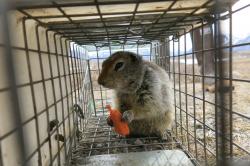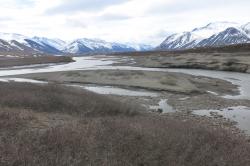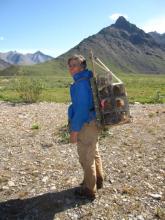Update
Now Archived! PolarConnect event with Jenn Baldacci and "Team Squirrel" from Toolik Field Station in Alaska. You can access this and other events on the PolarConnect Archives webpage.
What Are They Doing?

Predicting how species might alter their annual timing in response to rapid environmental change, including climate change, is constrained by insufficient knowledge of the endogenous mechanisms animals use to keep time, the cues used to adjust timing, and the extent to which programmed seasonal cycles are physiologically plastic. This study will investigate the mechanisms that underlie plasticity in the seasonal induction of the neuroendocrine signals that trigger the termination of hibernation and onset of reproduction in ground squirrels.
Where Are They?

Latest Journals

Cory Williams is currently a research assistant professor at Northern Arizona University. His research examines the physiological and behavioral mechanisms that allow animals to cope with environmental change. Specifically, he is interested in the functional and ecological significance of circadian rhythms in arctic vertebrates and the factors underlying plasticity in the timing of annually recurring life-cycle events. Ultimately, the capacity of polar animals to adjust their timing in response to changing environmental conditions, either through phenotypic plasticity or microevolution, will be an important determinant of their resilience to climate change.




